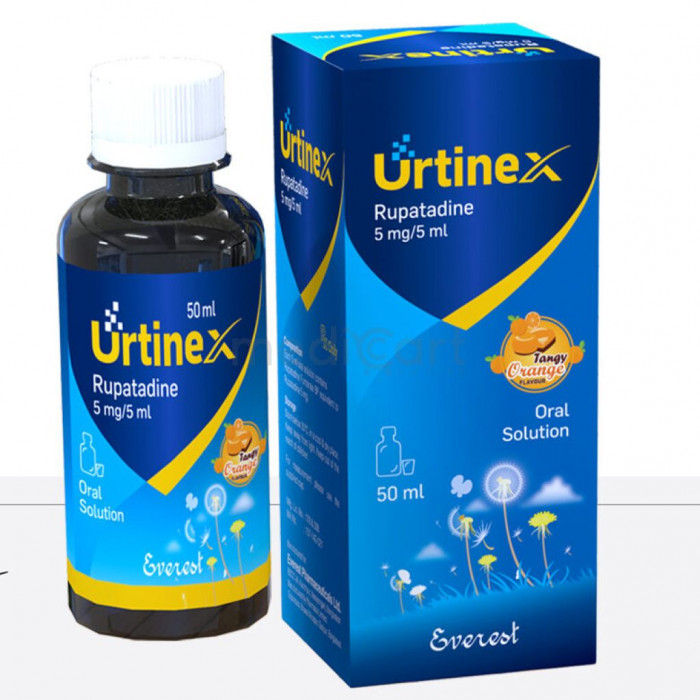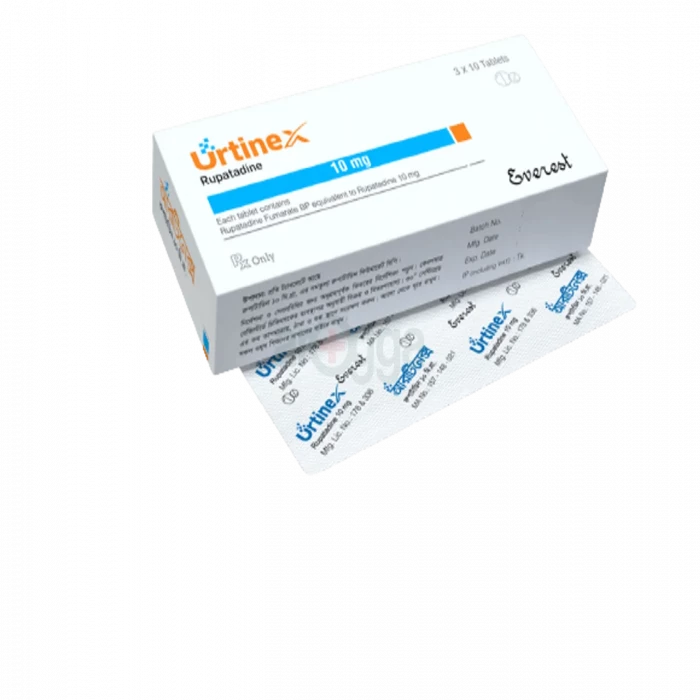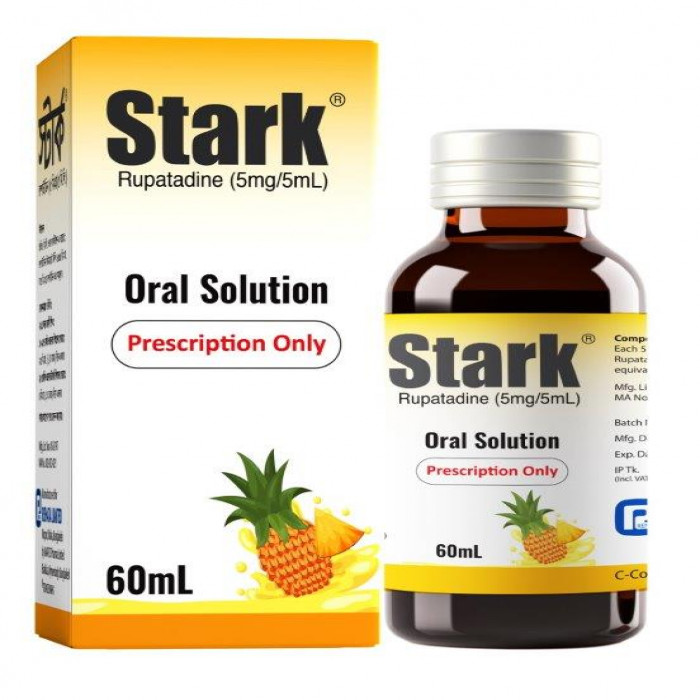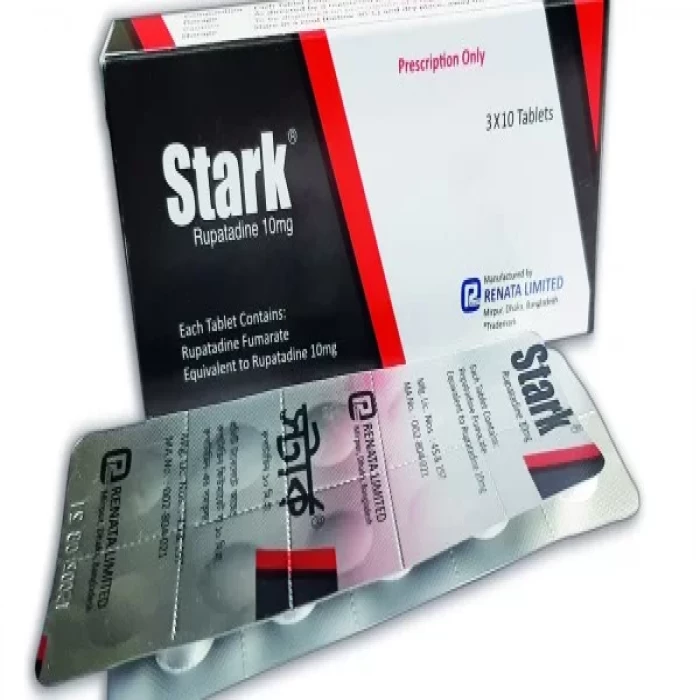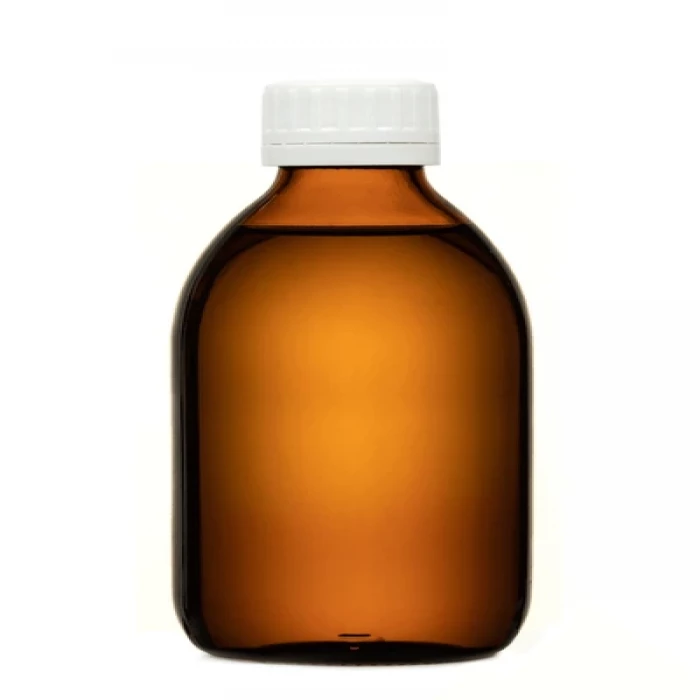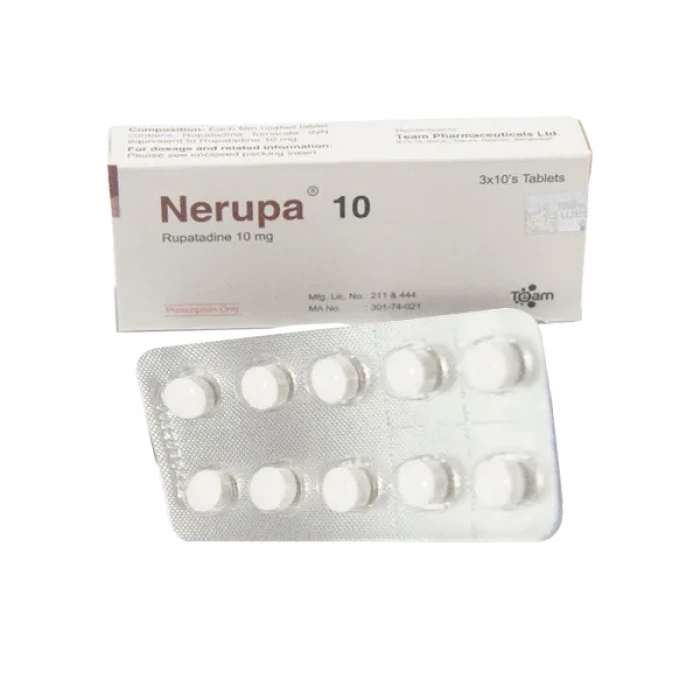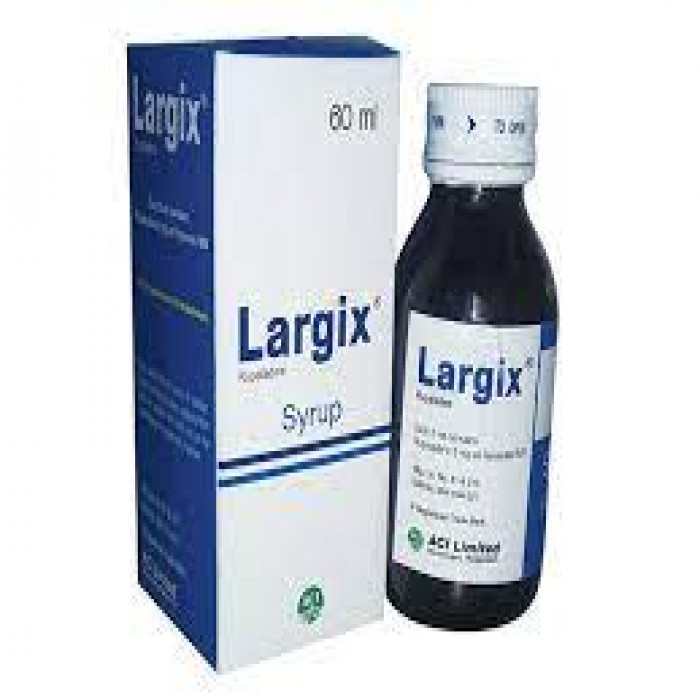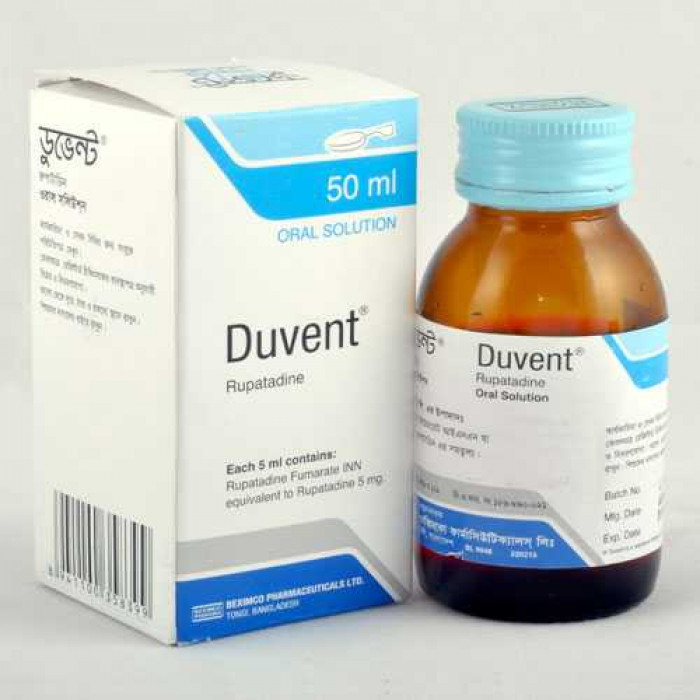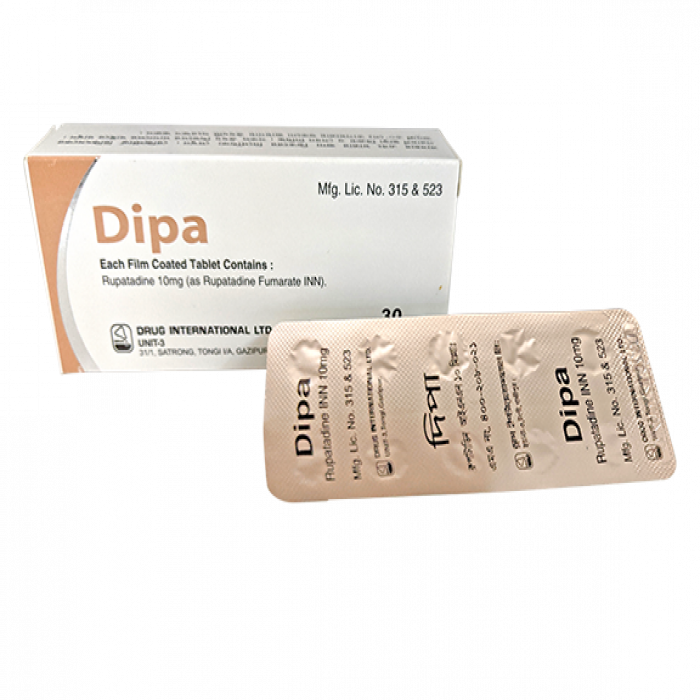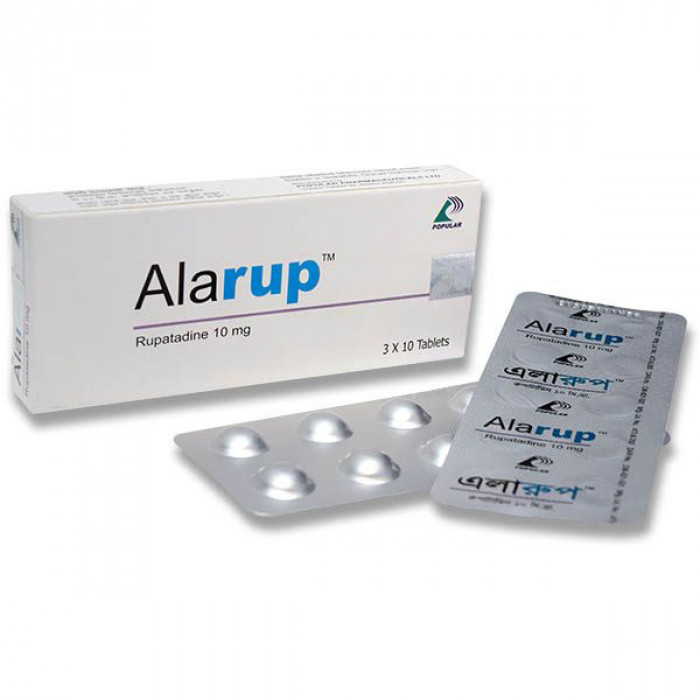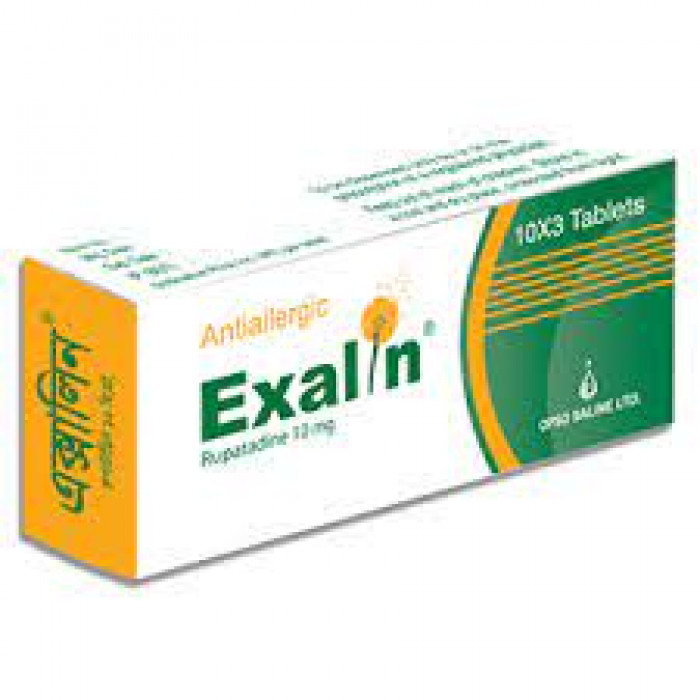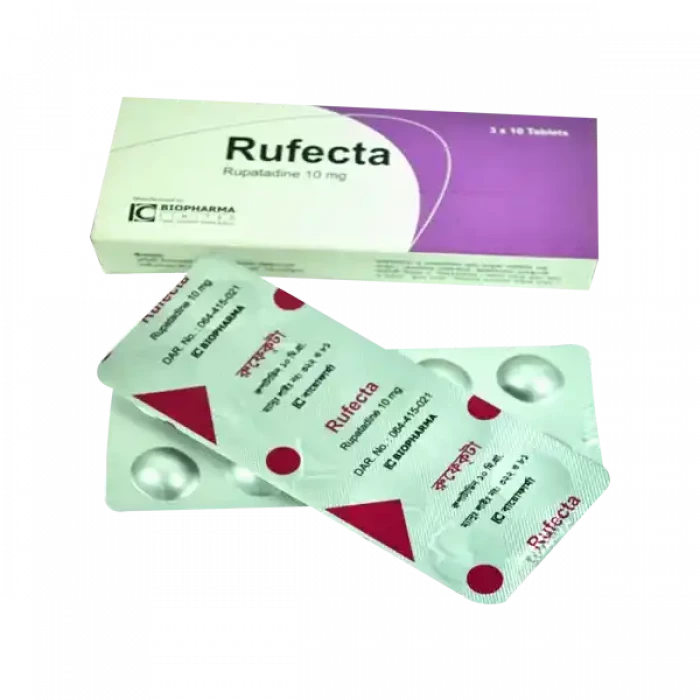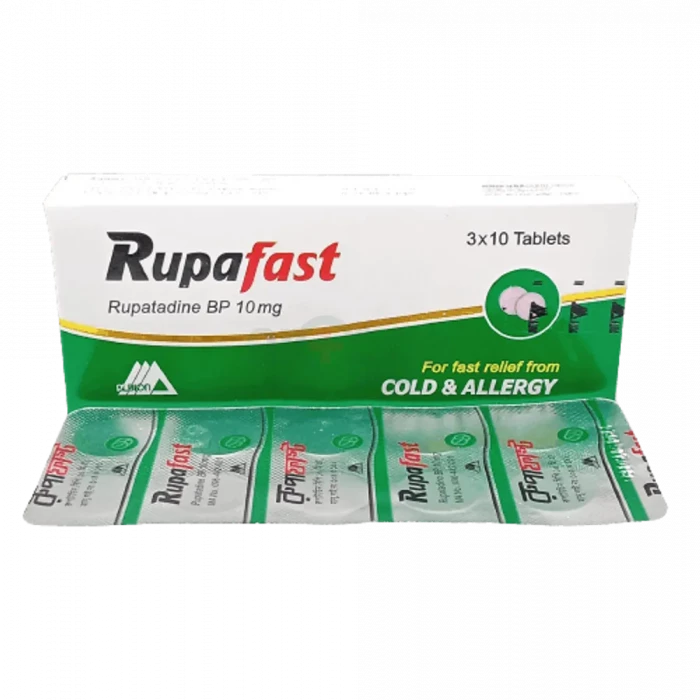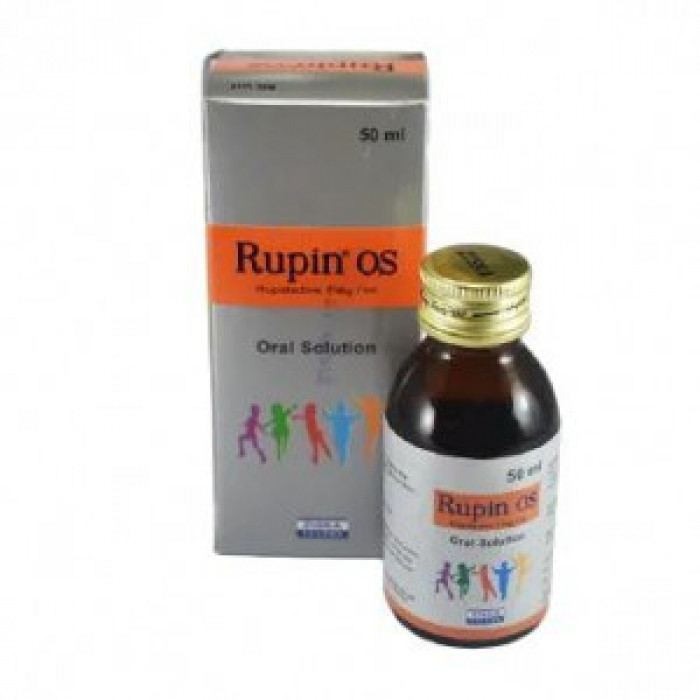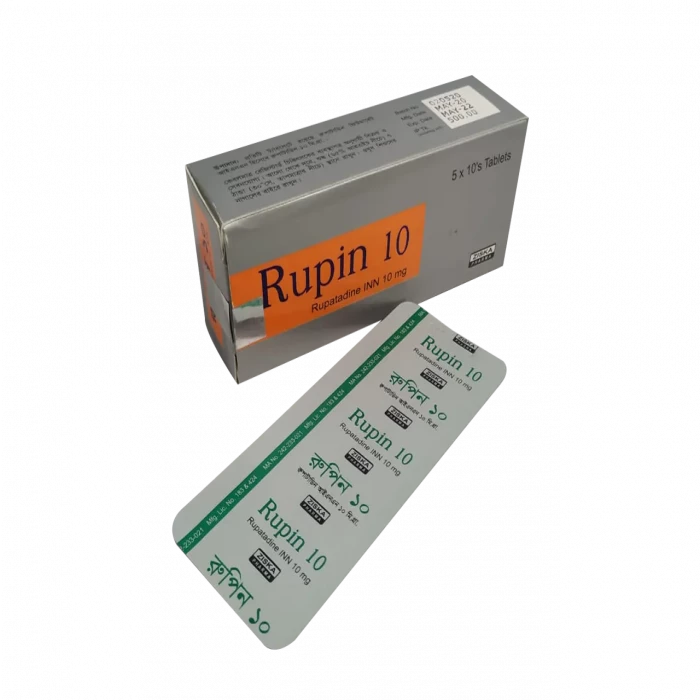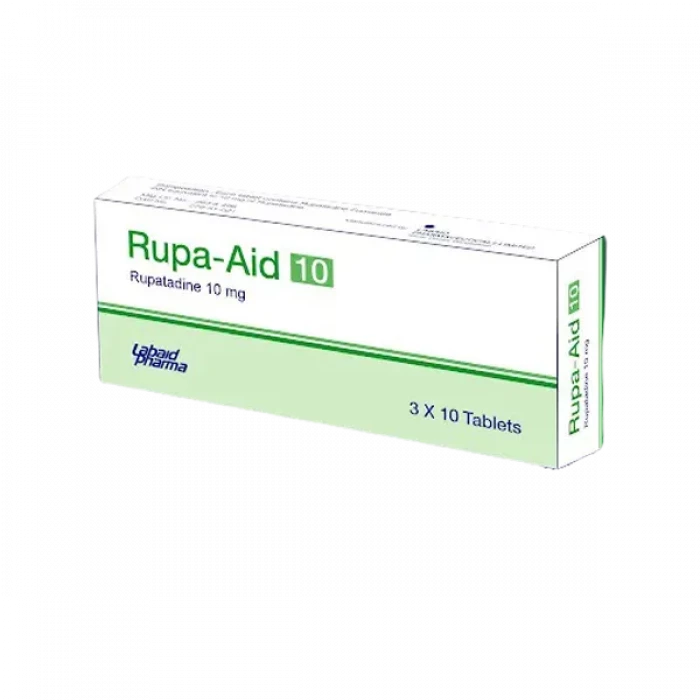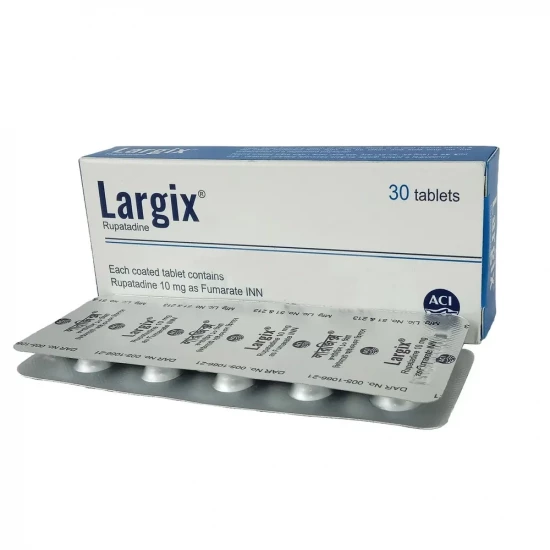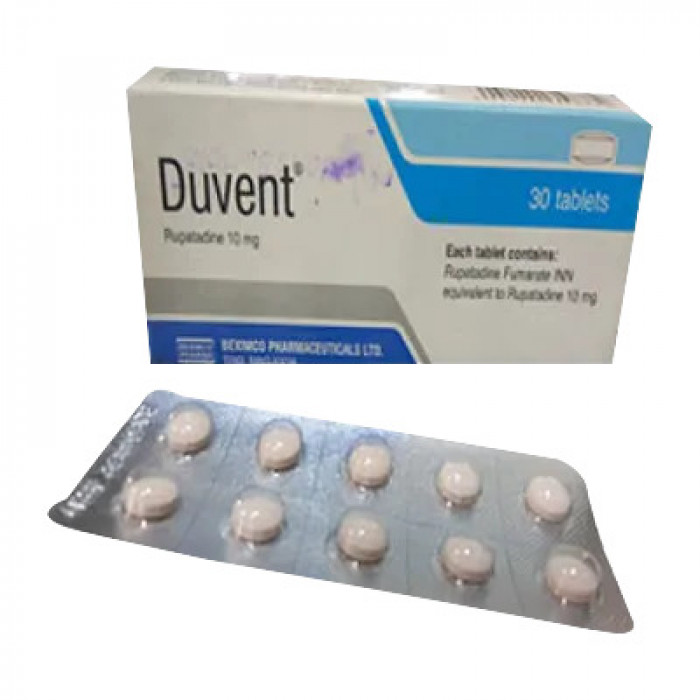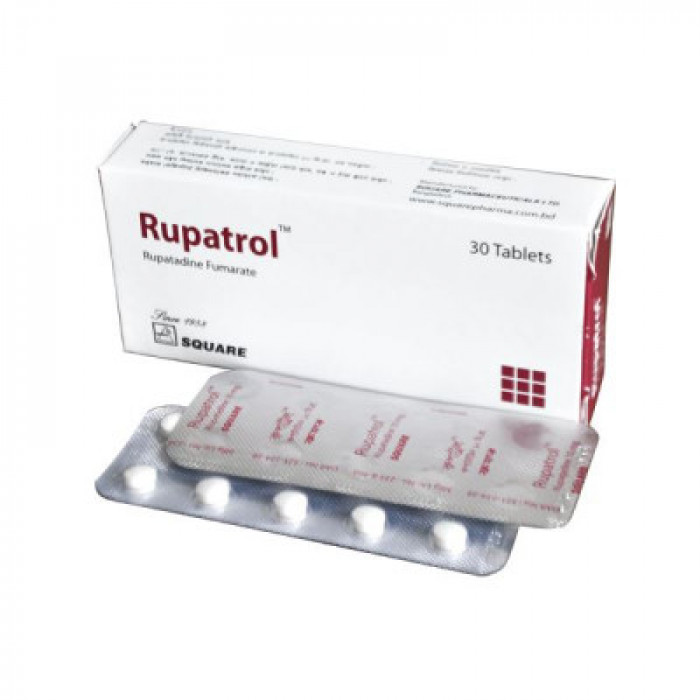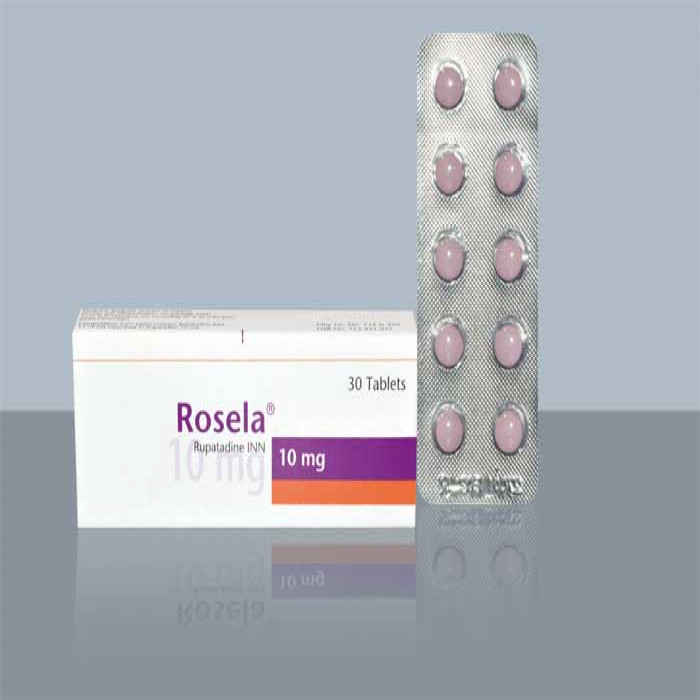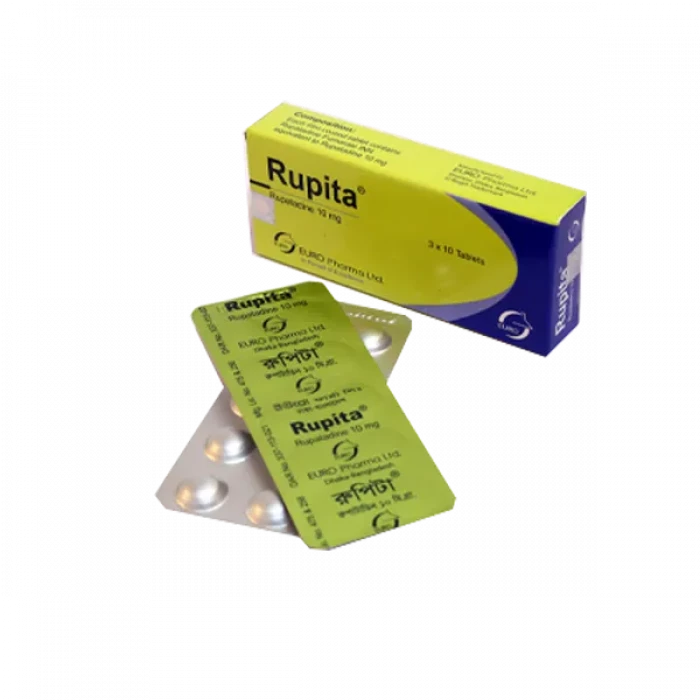
✔ 100% Authentic Product
👁️ Currently Viewing 2381
Rupita belongs to the category of non-sedating antihistamines. Rupita is indicated for the symptomatic treatment of Seasonal & Perennial Allergic Rhinitis and Urticaria.
Discount
Price: ৳ 105
MRP:
৳
110
5%
Off

100% Genuine Products, Guaranteed

Safe & Secure Payments, Always

Fast, Secure & Efficient Delivery

Proper Packaging
 Cash on Delivery - All over Bangladesh
Cash on Delivery - All over Bangladesh Regular Delivery - 12-24 Hours, Dhaka City* Charge Tk.39-59
Regular Delivery - 12-24 Hours, Dhaka City* Charge Tk.39-59 Regular Delivery - 24-48 Hours, Other Cities* Charge Tk.99-110
Regular Delivery - 24-48 Hours, Other Cities* Charge Tk.99-110
🌙 রমযান অফার 🌙
 ফ্রি ডেলিভারিঃ - ৭৯৯ টাকা+ অর্ডারে, ঢাকা
শহরে
ফ্রি ডেলিভারিঃ - ৭৯৯ টাকা+ অর্ডারে, ঢাকা
শহরে ফ্রি ডেলিভারিঃ - ২৭৯৯ টাকা+ অর্ডারে, ঢাকার
বাহিরে
ফ্রি ডেলিভারিঃ - ২৭৯৯ টাকা+ অর্ডারে, ঢাকার
বাহিরে
📲 মোবাইল অ্যাপ অর্ডারে সাশ্রয় বেশী
-
Google Play Store থেকে ডাউনলোড
-
Apple Store থেকে ডাউনলোড
100% Genuine Products, Guaranteed
Safe & Secure Payments, Always
Fast, Secure & Efficient Delivery
Proper Packaging
 Cash on Delivery - All over Bangladesh
Cash on Delivery - All over Bangladesh Regular Delivery - 12-24 Hours, Dhaka City* Charge Tk.39-59
Regular Delivery - 12-24 Hours, Dhaka City* Charge Tk.39-59 Regular Delivery - 24-48 Hours, Other Cities* Charge Tk.99-110
Regular Delivery - 24-48 Hours, Other Cities* Charge Tk.99-110 ফ্রি ডেলিভারিঃ - ৭৯৯ টাকা+ অর্ডারে, ঢাকা
শহরে
ফ্রি ডেলিভারিঃ - ৭৯৯ টাকা+ অর্ডারে, ঢাকা
শহরে ফ্রি ডেলিভারিঃ - ২৭৯৯ টাকা+ অর্ডারে, ঢাকার
বাহিরে
ফ্রি ডেলিভারিঃ - ২৭৯৯ টাকা+ অর্ডারে, ঢাকার
বাহিরে- Google Play Store থেকে ডাউনলোড
- Apple Store থেকে ডাউনলোড
🌙 রমযান অফার 🌙
📲 মোবাইল অ্যাপ অর্ডারে সাশ্রয় বেশী
✅ Description:
Rupatadine belongs to a class of drugs known as antihistamines or anti-allergics, utilized in treating allergic conditions like allergic rhinitis and urticaria. Allergic rhinitis, commonly referred to as hay fever, manifests as inflammation in the nose due to an exaggerated immune response to airborne allergens. Urticaria, also called hives, presents as sudden outbreaks of swollen, pale red bumps or plaques (wheals) on the skin, triggered either by the body's reaction to specific allergens or for unknown reasons.
The active ingredient in Rupatadine is rupatadine. It operates by diminishing the levels of histamine, a chemical substance responsible for instigating allergic symptoms such as itching, sneezing, runny nose, swelling, and rashes.
Rupatadine can be taken with or without food, swallowed whole with a glass of water, and should not be chewed, bitten, or broken. The frequency of tablet intake is determined by your medical condition, as advised by your doctor. While using Rupatadine, you may encounter common side effects like headaches, dizziness, dry mouth, fatigue, tiredness, nausea, and abdominal pain. Typically, these side effects diminish over time and do not necessitate medical intervention. However, if they persist, discontinuing the medication and consulting your doctor is recommended.
Avoid taking Rupatadine if you are allergic to rupatadine. Always adhere to your doctor's instructions regarding Rupatadine usage. Inform your doctor about any other medications you are taking alongside Rupatadine. Additionally, consult your doctor before using Rupatadine if you are pregnant, planning to conceive, or breastfeeding. Exercise caution when administering Rupatadine to elderly patients (aged > 65 years) due to an elevated risk of severe adverse effects. Similarly, patients with heart, kidney, or liver conditions should use Rupatadine cautiously.
Safety Advices

Alcohol
UNSAFE
Avoid consuming alcohol while undergoing treatment with this medication, as it may heighten the risk of severe adverse effects.

Pregnancy
CONSULT YOUR DOCTOR
Rupita 10mg Tablet should not be used by pregnant women. Discuss all potential risks and benefits with your doctor before initiating treatment with this medication.

Breastfeeding
CONSULT YOUR DOCTOR
Breastfeeding women should refrain from using Rupatadine. Consult your doctor to weigh the risks and benefits, and follow their guidance regarding the continuation of medication or breastfeeding based on your clinical condition.

Driving
CAUTION
Some patients may experience drowsiness or dizziness while taking Rupita 10mg Tablet. Refrain from activities such as driving or operating machinery if you experience these symptoms during treatment.

Kidney
CONSULT YOUR DOCTOR
Patients with a history of renal diseases should avoid using Rupatadine, as its safety and efficacy have not been clinically established in this population.

Liver
CONSULT YOUR DOCTOR
Rupatadine is not recommended for individuals with a history of renal diseases, as its safety and efficacy have not been clinically established in such patients.
✔️ Uses of Rupatadine
Allergic-rhinitis and urticaria.
✔️ How does Rupatadine work?
Rupatadine works by blocking the effects of histamine (chemical messenger) which causes allergic reactions, thereby providing relief from allergic symptoms such as swelling, itching, running nose, sneezing, rashes, and watery eyes.
✔️ Side Effects of Rupatadine
- Sleepiness
- Headache
- Dizziness
- Dry mouth
- The sensation of weakness and fatigue
✔️ Quick Suggestions:
- Take rupatadine exactly as prescribed by your doctor. Follow the recommended dosage, frequency, and duration of treatment. Do not adjust the dose without consulting your doctor
- Drinking water regularly can help alleviate any dry mouth you may experience as a side effect of rupatadine
- Rupatadine is not recommended for use in pregnant women. Consult your doctor before taking rupatadine
- Rupatadine should be used during breast-feeding only if considered necessary or treatment with this medicine should be discontinued considering the benefit of breastfeeding for the child. Consult your doctor before taking
- Avoid consumption of alcohol and grapefruit while taking Rupatadine as it can increase the risk of side effects like drowsiness
✔️ Indication of Rupatadine
Rupatadine is used to relieve the symptoms of allergic rhinitis such as sneezing, runny nose, and itching in the eyes and nose which is also used to relieve the symptoms associated with urticaria (an allergic skin rash) such as itching and hives (localized skin redness and swelling).
✔️ Pharmacology
Rupatadine acts as a long-acting antagonist of histamine H1-receptors and platelet-activating factor (PAF). These substances contribute to bronchoconstriction and increased vascular permeability in inflammatory processes. By targeting both histamine and PAF, Rupatadine provides enhanced therapeutic effects compared to single-action antihistamines. It also inhibits mast cell degranulation triggered by various stimuli and suppresses the release of cytokines, including tumor necrosis factor-alpha (TNF α), in human mastocytes and monocytes.
✔️ Dosage & Administration of Rupatadine
- Adults and adolescents (over 12 years): The standard dose is 10 mg once daily, with or without food.
- Children aged 2 to 11 years:
- For children weighing 25 kg or more: 1 teaspoonful (5 ml) of the oral solution once daily, with or without food.
- For children weighing equal to or more than 10 kg to less than 25 kg: 1/2 teaspoonful (2.5 ml) oral solution once daily, with or without food.
✔️ Elderly:
Use cautiously; no dose adjustment is currently indicated.
✔️ Children:
Safety and efficacy have not been established in patients under 12 years of age.
✔️ Patients with renal or hepatic insufficiency:
Not recommended due to lack of relevant clinical data.
✔️ Overdose Effects:
The most common adverse reaction in cases of overdose is drowsiness. In the event of accidental ingestion of very high doses, provide symptomatic treatment and supportive measures.
✔️ Interaction
- Medication interactions: Concurrent use of Rupita 20 mg with ketoconazole or erythromycin can increase systemic exposure. Caution is advised when co-administered with these substances and other CYP3A4 inhibitors, statins, CNS depressants, or alcohol.
- Food interactions: Grapefruit and grapefruit juice should not be consumed simultaneously with Rupatadine.
✔️ Contraindications
Avoid Rupatadine in individuals with hypersensitivity to Rupatadine or any excipients.
✔️ Pregnancy & Lactation:
Clinical data on Rupatadine's effects during pregnancy are lacking. Pregnant women should avoid using Rupatadine unless the potential benefits outweigh the risks. Its excretion in breast milk is uncertain, so it's generally not recommended during lactation unless the benefits outweigh the risks.
✔️ Precautions & Warnings:
Exercise caution in patients with known QT interval prolongation, uncorrected hypokalemia, or ongoing proarrhythmic conditions. Use with care in elderly patients (65 years and older). Currently, there's limited clinical experience in patients with impaired kidney or liver function, so the use of Rupita 10 mg tablets is not recommended in these cases.
✔️ Storage Conditions:
Store below 30°C in a cool, dry place, away from light and moisture. Keep out of reach of children.
⚠️Disclaimer:
At ePharma, we’re committed to providing accurate and accessible health information. However, all content is intended for informational purposes only and should not replace medical advice from a qualified physician. Please consult your healthcare provider for personalized guidance. We aim to support, not substitute, the doctor-patient relationship.




